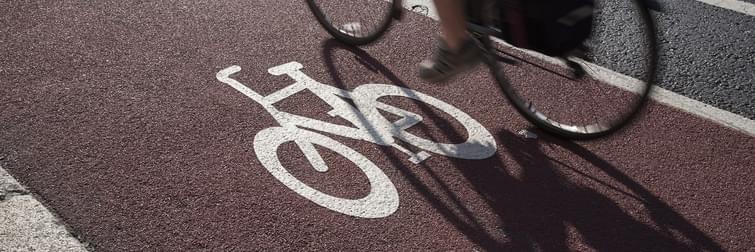
news: Influencing policymakers on active travel
Thursday 25th October 2018
The choices we make when planning our urban areas can have a significant impact on the travel choices we make, which in turn has a knock-on effect on the air quality of our towns and cities and the health and well-being of our local communities. Transport networks that prioritise the private car make it more difficult for people to make active travel choices for local trips, and contribute to an ever-increasing dependency on car use. We are committed to creating more sustainable places and tackling the barriers that prevent people from making active travel journeys. In all of our work we seek to prioritise walking, cycling and public transport wherever possible, to create more pleasant places for everyone, and we feel it is our duty as ambassadors for sustainable travel to help influence these decisions at a policy level.
Hence, we recently prepared a response to the House of Commons Inquiry on Active Travel, which was seeking evidence on why the take-up of active travel is low in England and compares unfavourably with many European countries. You can download our full submission from the here or via the Transport Committee’s website here.
In our response we highlighted some of the evidence we have collected over the last 20 years, demonstrating how active travel infrastructure and behaviour change programmes can have a big impact on the health, wealth and well being of our nation. For example, we have carried out post-implementation project evaluation studies of active travel projects for several Local Authorities, which consistently yield Benefit to Cost Ratios (BCR) of between 4:1 and 15:1, demonstrating very high value for money. Similarly, we have produced business cases for many active travel schemes, which forecast similar out-turn results, due to not only the traditional decongestion benefits, but notable improvements in air quality and health benefits to local communities.
We also flagged up in our response to the Active Travel Inquiry the barriers to implementation that we have encountered, not least the on-going challenge of securing a long term committed funding stream at the local level to not only deliver consistent, cohesive and well-planned active travel networks, but to be able to promote these through positive behaviour change campaigns.
In our response we highlighted how the UK has a lot to learn from approaches adopted by other countries, such as The Netherlands and Denmark, to increase active travel as a way of enhancing a sense of place. We saw this in our recent ITP study visit to Utrecht, and if the right steps are taken we can realise the benefits in the future that these countries are reaping now – the amount of investment we make in active travel in the coming years will dictate how soon this change will happen.
If you'd like to know more about our thoughts on designing places that encourage active travel, please get in touch.
